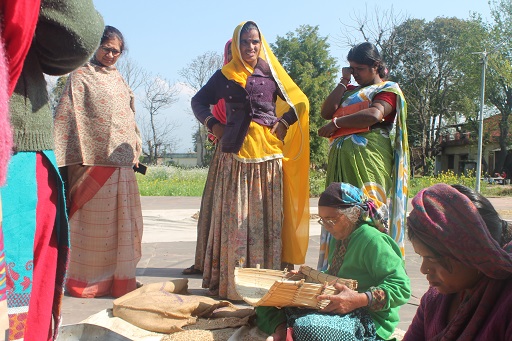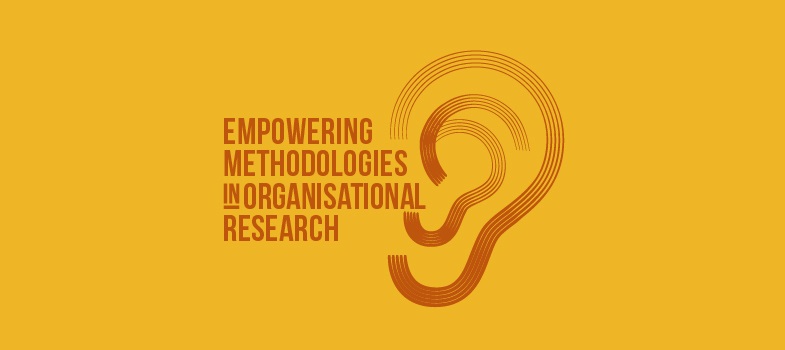5 Empowering research as a way of knowing and being
Introduction
In this section we move on to consider the relationship between method and methodology in empowering research. Moving beyond focusing on method as a way of accessing knowledge and towards an understanding of research as constituting knowledge: this allows research to be understood as ‘a way of being’ that involves asking questions about the kind ‘of social science we want to practice. And then, as part of this … about the kinds of people that we want to be, and about how we should live’ (Law, 2004: 10). This alludes to the overall worldview (including theoretical, axiological, epistemological and ontological assumptions) that inform how a researcher approaches the task of producing knowledge.

‘Methodology’ refers to the overall approach implied by a researchers’ choice of particular methods, in combination with their theoretical orientation and the research questions that they ask. In Film Focus 2 (Section 2) Emma made the case for research to be considered as a craft. These ideas are taken further in Bell and Willmott (2019), who argue that craft offers a distinctive way of knowing that emphasises hands-on learning, improvisation, skill and embodied ways of knowing. This draws on the work of C. Wright Mills (1959), who pointed to the ‘sociological imagination’ as a ‘quality of mind’ that combines ‘playfulness’ with ‘a truly fierce drive to make sense of the world’ (p. 211, cited in Puwar and Sharma, 2012: 44). Key to this is the notion that research needs to become more ‘artful and crafty’ (p.9; see also Film Focus 2) by inventing new methods and reinventing established ones in ways that enable collaboration with participants and engagement with wider audiences.
In a related vein, Vannini and Vannini (2019: 1) argue that ‘an artisanal ethnography is resolutely itinerant in regard to all its work processes, deeply sensitive to its materials, and profoundly aware of the affordances of its tools’. This relies on ‘unscripted and nondetermined processes through which skilled practice unfolds’ (Vannini and Vannini, 2019: 2). ‘Artfulness in the sense it is being used here also involves being wily or bringing a bit of craftiness into the craft’ (Back, 2012: 34, emphasis in original). Craft thereby acts as a resource that organisational researchers can use to engage with and resist the political pressures that they face (see Section 2) in order to facilitate greater research empowerment.
As discussed in Section 1, the methods used in empowering research are inherently improvisational, learned through skilled practice and sensory attentiveness to one’s surroundings. Learning the craft of research could be thought of as following a long tradition of handing down knowledge from craft practitioners to apprentices. This type of situated learning, based on legitimate peripheral participation, is common to many learning encounters. An empirical PhD study, for example, could be considered as a way of learning not just from research supervisors or academic colleagues but also from participants. Two outcomes of that PhD study would then be for the researcher to become a member of participants’ community of practice in the field in order to learn about a specific social or cultural phenomenon, and consequently then become a member of the research-based community of practice in their discipline based on the knowledge they gain from their study (Lave and Wenger, 1991). To think about the research field as a community of practice and to treat participant observation as legitimate peripheral participation positions the researcher as a non-expert – which is very different to conventional, mainstream understandings of their role. Hence, for the researcher to ontologically position themselves as a learner (Butcher, 2013), they empower participants to teach them about their lived experiences, and to some extent lead the research process, see Film Focus 9.
Related to this is the idea of research as a practice whereby ‘researchers make knowledge’ (Morgan, 1983: 7, emphasis in original). Hendry et al. (2018: 1) suggest that ‘to trouble method is to acknowledge not only that it is the consequence of a particular time and place, but that it is not inevitable, natural, or universal’. They suggest that conventional, modernist, scientific approaches to method have resulted in a situation where we are ‘severely limited [in] our capacity to “be” in the world, [and] to recognize that we are part of a complex, indeterminate, and always in process system of relationships’ (p.9). Crucially, they pose the question of how research can be ‘reconceived not as a product, but as a process of being in relationship to others’ (p.13). The implications of this are far-reaching and imply a shift towards a relational ethics of producing knowledge where what is known is unstable, situated and shifting. An ontology of uncertainty relies on the researcher adopting a stance of ‘radical openness’, based on appreciating that their humanity is ‘linked with that of people with whom he or she studies’ (Dillard, 2012, cited in Hendry et al., 2018). This draws attention to the sacred nature of human connectedness, which they suggest is embedded in such practices of knowing. Finally, they highlight the importance of modes of inquiry that are tolerant of uncertainty and doubt, as a fundamental condition of attempts at knowing that are always in flux and changing. This course is inspired by this way of thinking about research as a basis for challenging conventional, mainstream methodological thinking and exploring alternatives.

